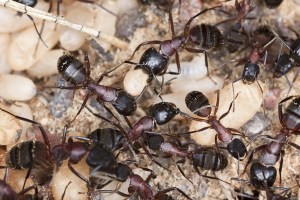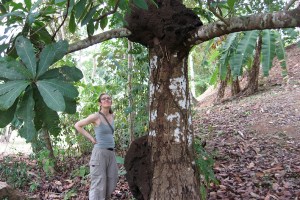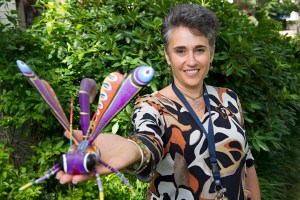
Expertise
Rebeca Rosengaus in the Press
Buzzfeed
Here’s What The Cordyceps Fungus Is Like In Real Life, According To Scientists
“The fungus attacks insects that live in the ground or soil,” said Rebeca Rosengaus, an associate professor and behavioral ecologist at Northeastern University. “Ants are one but there are also grasshoppers, spiders, locusts.”

The Fossil Record Of ‘Fungal Zombies’
“It already starts changing the neurobiology of the host so that it basically makes it a zombie organism, meaning this parasite takes over, producing some kind of neurotoxins or neuromodulators that change the behavior of the host,” says Rebeca Rosengaus, associate professor of marine and environmental sciences at Northeastern University.

What Can Ants and Bees Teach Us About Containing Disease?
The insects are “living in very confined environments where there’s a lot of microbial load,” said Rebeca Rosengaus, a behavioral ecologist who studies social insect behavior at Northeastern University in Boston.
In Social Insects, Researchers Find Clues for Battling Pandemics
The insects are “living in very confined environments where there’s a lot of microbial load,” said Rebeca Rosengaus, a behavioral ecologist who studies social insect behavior at Northeastern University in Boston.
Mother Jones
Some Insects Are Very Social. They Also May Offer Hints for Controlling Disease.
The insects are “living in very confined environments where there’s a lot of microbial load,” said Rebeca Rosengaus, a behavioral ecologist who studies social insect behavior at Northeastern University in Boston.

Eating each other’s faeces helps earwig young survive famine
“Unfortunately, we cannot go back in time to see what environmental factors, including diet, were responsible for the evolution of social tendencies,” says Rebeca Rosengaus at Northeastern University in Boston, Massachusetts. “So the manipulations performed by the authors are only a first step to understand the dynamics between environmental stress and sociality.” Although the evolution of any trait is […]

Faecal position
SMEARING the place you inhabit with faeces is, among people, an act of desperation rarely seen outside the confines of a prison. Some cockroaches, though, do it all the time. Rebeca Rosengaus of Northeastern University, in Boston, thinks she knows why. As she and her colleagues discovered in a study just published in Naturwissenschaften, wood-cockroach faeces […]
Discovery News
Termites Create Their Own Antibiotics
Rebeca Rosengaus also studies termites and is an associate professor in the Department of Marine and Environmental Sciences at Northeastern University. She told Discovery News: “A variety of insects — both solitary and social — exploit the chemicals of Streptomyces to control parasites and/or pathogens.” Based on the latest study, which she said is “well […]



